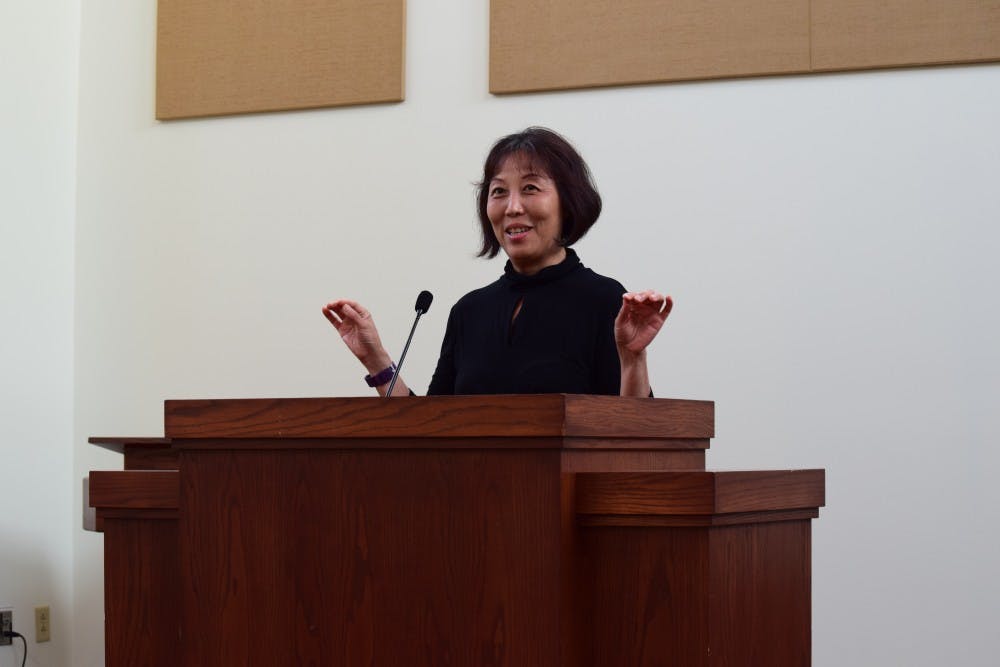“United in Verse,” a program to join the many languages that are spoken on Shippensburg University’s campus with poetry, was held in the Cora L. Grove Spiritual Center on April 18.
Robert Lesman, associate professor of Spanish, organized the event by contacting organizations around campus, looking for people who wanted to share poetry, whether it was in their native language or a language that they have been learning.
SU study abroad student Duhyun Lee came prepared with a poem his grandmother wrote.
Lee spoke about being a study abroad student from South Korea and how the poem he read describes the moon. “I can see my family through the moon and my family can see me through the moon,” Lee said.
Lee picked this poem to read at the event because his favorite poems are ones that his grandmother, a poet herself, have written.
“When we’re young, we start learning [the poem] from a young age we all listen,” said Afia-Baria Quershi, an SU student who read “Al-Qaseedah” by Promised Messiah in Arabic. By reading this poem at the event, she connected with her self as much as with the audience, seeing as this poem is something taught all through youth in the Ahmadiyya Muslim Community of Islam, according to Quershi.
“In our religion we’re taught to bring humanity together,” Quershi said. “I’m connected by my faith [by] showing that we are diverse and everyone is different. It helps to see the other people. That’s what helps us see the difference in what helps unite people.
While some students read poems in their native language, others like Peggy Trayhey and Blair Garrett read in languages they were learning.
Trayhey read the poem, “Immigrants (We Get The Job Done)” from the Broadway musical Hamilton, in Spanish.
“It was really hard. I was lucky because it’s a performance I can listen to,” Trayhey said. “But on top of that it was a lot of nerve to make sure what I was pronouncing [was correct]. It was kind of hard, but a good challenge.”
Throughout the night, various languages were spoken ranging from Arabic, to Spanish to Russian and even Tshiluba, a dialect spoken in the Democratic Republic of the Congo in Africa. Many stories were told with them as well.
Some students and faculty spoke about their journeys learning the language, and others mentioned personal connections between the poems and their native language. This event put into perspective how diverse SU really is.
“It’s a beautiful thing that we come from different cultures,” Lesman said. “No matter where you go — a human being is a human being.”


The Slate welcomes thoughtful discussion on all of our stories, but please keep comments civil and on-topic. Read our full guidelines here.